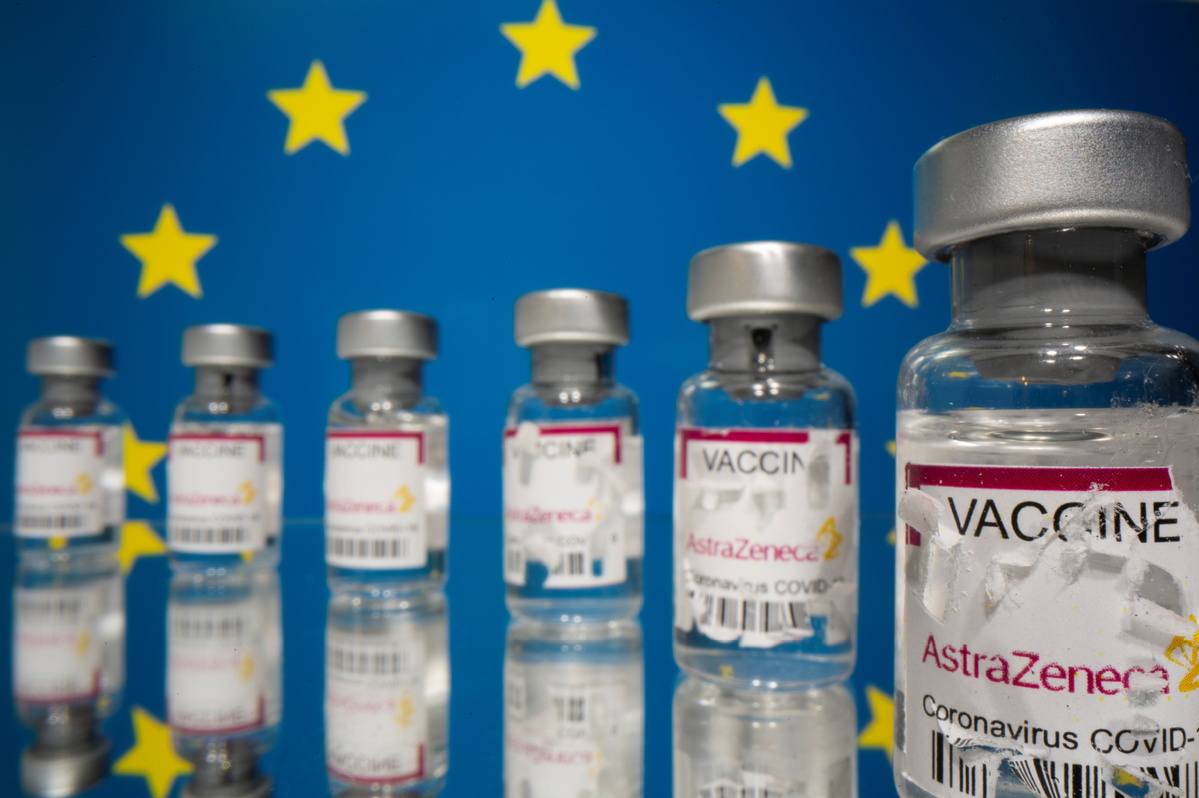More countries pause vaccine roll-out for fear of potential clot risks


Officials from the United Nations and European Union are to hold talks as the temporary suspension of deployment of the AstraZeneca novel coronavirus vaccine continues to spread across the EU, because of fears that it may be connected to cases of blood clotting.
Its suspension, said Tedros Adhanom Ghebreyesus, Director General of the World Health Organization, or WHO, "does not necessarily mean these events are linked to vaccination, but it's routine practice to investigate them, and it shows that the surveillance system works and that effective controls are in place".
At the same time as EU countries are increasingly expressing doubts about the vaccine made by the Anglo-Swedish pharmaceutical company, European Commission President Ursula von der Leyen has announced a deal for what she called the "accelerated delivery" of 10 million doses of the vaccine developed by BioNTech and Pfizer, for the second quarter of the year.
"This will bring the total deliveries of this vaccine to 200 million doses for that quarter," she tweeted. "It will give (EU) Member States room to manoeuvre and possibly fill gaps in deliveries."
Germany, France, Portugal and Spain have become the latest countries to join a growing list of countries that have called a temporary halt to use of the vaccine, despite reassurances from the European Medicines Agency, or EMA, that there is no link between the vaccine and a small number of cases of people who developed blood clots after receiving it.
Germany's Health Minister Jens Spahn said the "precautionary" measure was taken after consultation with national health regulator, the Paul Ehrlich Institute (PEI), adding that "the decision is a professional, not political one" and that any further decision on its use would be made based on new information coming from the EMA.
"After new reports of thrombroses of the cerebral veins in connection with the vaccination in Germany and Europe, the PEI considers further investigations to be necessary," said a statement from the health ministry. "The most important thing for confidence is transparency," Spahn added.
French President Emmanuel Macron also announced a temporary halt to its use on Monday. "The decision that was taken, in accordance with our European policy, is to suspend as a precaution the vaccination with AstraZeneca, hoping to resume it as soon as possible if the opinion is favorable," he explained. Macron made the comments at a Franco-Spanish summit, which took place as Spain too stopped using the vaccine for at least a fortnight.
The WHO said on Monday that its Global Advisory Committee on Vaccine Safety would meet on Tuesday, and has been in close contact with the EMA, which has in turn said it will make an announcement about the AstraZeneca vaccine on Thursday, which it hopes will bring the matter to a conclusion.
"EMA currently remains of the view that the benefits of the AstraZeneca vaccine in preventing COVID-19, with its associated risk of hospitalization and death, outweigh the risks of side effects," the organization said in a statement.
Better news for AstraZeneca has come from Australia, where the country's chief medical officer, Paul Kelly, says there is no link between the vaccine and blood clots.
However, the only vaccine manufacturer in the country, CSL, has said it is in talks with the Australian government about producing alternatives to the AstraZeneca jab.
"While CSL remains open to discussions about manufacture of alternative COVID-19 vaccines, our resources are fully committed to the manufacture of the AstraZeneca vaccine," the company's chief scientific officer, Andrew Nash, told The Guardian.
































